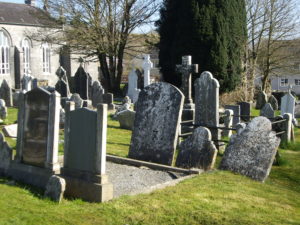Making a Will – Why Bother? It is surprising the high proportion of people who die every year without having made a will, or intestate, to use the legal term.

It is easy to understand the reasons people have for not making a will: “time is on my side”, “I don’t want to think about death”, or “I don’t need a will”.
When I suggest to a client that they should make a will, I am often told, “But if I die, my wife will get everything – which is what I want anyway”. Well, this is simply not the case. If you die intestate and leave a spouse and children, the law provides that your spouse will only take two thirds of your assets, and the other third will be divided up between all the children – no matter what their circumstances or ages. It can mean that assets are tied up until the children are 18 years old.
One way of avoiding this situation is by transferring the family home and other property into the joint names of both spouses, although that is not always possible. There are usually assets that remain in one spouse’s name, for example inherited and business property. And even when the assets are in joint names, the surviving spouse will have to consider who will inherit the assets when they die.
Disputes often arise – especially when the will is poorly drafted or vague. The most common dispute between the children is over the sale of the family home. This is naturally an emotional subject, and often one or more children will want to sell the house, while others can’t bear the thought of selling the home in which they grew up. There are often arguments over items of sentimental value which have not been dealt with in the will.
Another frequent dispute concerns children who believe that the division of assets is unfair for some reason. The disappointed child may challenge the will in court, either by alleging that the parent failed in his moral duty to provide for the child, or by arguing that the will itself was not validly made. These cases are difficult for all the parties, and when the case is over, the outcome is never a real success due to the high costs incurred, and the lasting hurt that can be caused.
Of course wills are not only about gifts of assets. They are also used to appoint executors, and legal guardians of children. Wills can also be used to establish trusts to benefit minor or disabled children. And very importantly, wills can be used to minimise taxes. More important than your property, however, are your children. What will happen if both you and your spouse or partner both die together or within a short period of each other ? Who will make decisions about their education, training and welfare ? How will they be supported from week to week ? These are all issues that you should address during your lifetime. You can avoid unnecessary upset and uncertainty by making proper plans now. If circumstances change, you can change your Will at any time in the future.
Most of these problems can easily be avoided by having a will drawn up, after spending time contemplating not only your personal wishes, but considering what is best for all your family.
By David Williams, Solicitor.
If you would like to find out more about the steps you can take to protect your family, contact:
David Williams at david.williams@arw.ie
Both David are available by phone at 021 4374444
